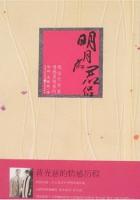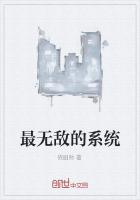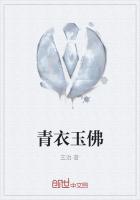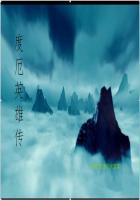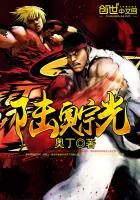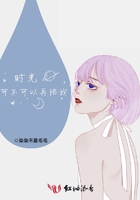Although my dancing was known and appreciated by many notable people, my fnancial situation was precarious, and we often worried terribly how to pay the rent of the studio, and, as we often had no coal for the stove, we suffered from cold。 Yet, in the midst of this poverty and deprivation, I can remember standing for hours, alone in our cold, bleak studio, waiting for the moment of inspiration to come to me to express myself in movement。At length my spirit would be uplifted, and I would follow the expression of my soul。
One day, as I was standing thus, there called on us a florid gentleman with an expensive fur collar on his coat, and a diamond ring。 He said:
“I am from Berlin。 We have heard of your barefoot act。”(As you can imagine, this description of my Art shocked me dreadfully。)“I have come from the largest music?hall to make an engagement with you at once。”
He rubbed his hands and beamed as if he were bringing me a wonderful piece of luck, but I retired into my shell like a hurt snail and replied distantly,“Oh, thank you。 I would never consent to take my Art into a music?hall。”
“But you do not understand,”he exclaimed。“The greatest artists appear in our hall, and there will be much money。 I already ofer you five hundred marks a night。There will bemore later。You will be magnificently presented as The First Barefoot Dancer in the world。'(Die erste Barfuss T?nzerin。Kolossal, kolossal。)Of course you will accept?”
“Certainly not。 Certainly not,”I repeated, becoming angry。“Not on any terms。”
“But this is impossible。 Unm glich。Unm glich。I cannot take‘No'for an answer。I have the contract ready。”
“No,”I said,“my Art is not for a music?hall。I will come to Berlin some day, and I hope to dance to your Philharmonic Orchestra, but in a Temple of Music, not in a music?hall with acrobats and trained animals。Quelle horreurl Mon Dieui No, not on any terms。I bid you good day and adieu。”
Looking at our surroundings and shabby clothes, this German impresario could hardly believe his ears。 When he returned the next day, and the next, and finally ofered me a thousand marks an evening for one month, he grew very angry, and characterised me as a“Dummes M?del,”until finally I shouted at him that I had come to Europe to bring about a great renaissance of religion through the Dance, to bring the knowledge of the Beauty and Holiness of the human body through its expression of movements, and not to dance for the amusement of overfed bourgeoisie after dinner。
“Please go away!Allez vous en!”
“You refuse one thousand marks a night?”he gasped。
“Certainly,”I replied sternly,“and I would refuse ten thousand, one hundred thousand。 I am seeking somethingwhich you don't understand。”And, as he left, I added,“I will come to Berlin one day。I will dance for the countrymen of Goethe and Wagner, but in a theatre that will be worthy of them, and probably for more than a thousand marks。”
My prophecy was fulflled, for this same impresario had the grace to bring fowers to my loge three years afterwards in the Krol's Opera House, with the Philharmonic Orchestra of Berlin playing for me, when the house was sold out for more than twenty?five thousand marks。He acknowledged his error with a friendly,“Sie batten Recht, Gn?diges Fr?ulein, Küss die Hand。”
But for the time being we were very pressed for funds。 Neither the appreciation of princes, nor my growing fame, brought us enough to eat。At that time there came frequently to our studio a diminutive lady who resembled an Egyptian princess, although she hailed from somewhere west of the Rockies and bore the name of her native State through a long and famous career。She sang like an enchantress。I noticed that little violet?scented notes were often poked under the door in the early morning hours, followed by the surreptitious disappearance of Raymond。As he was not in the habit of taking walks before breakfast, I put two and two together, and gathered my conclusions。And then one day Raymond announced to us that he was engaged in some capacity in a concert tour to America。
So Mother and I were left alone in Paris。 As Mother was ailing, we moved to a little hotel on the Rue Marguerite, where she could at last sleep in a bed without draughtsfrom the cold foor, as in the studio, and where she could have regular meals, since we were en pension。
In the pension I noticed a couple who would have attracted attention anywhere。 She, a remarkable?looking woman of about thirty, with great eyes—the strangest I have ever seen—soft, deep, alluring, magnetic eyes filled with fiery passion and, at the same time, with something of the submissive humility of a great Newfoundland dog。She had auburn hair, framing her face like fames, and every movement was vibrant with the appeal of love。I remember thinking that when one looked into her eyes it was like entering the crater of a volcano。
He, slight, with a fne brow and somewhat weary face for one so young。 They generally had a third person with them and were always absorbed in conversation so animated and vital that it seemed as if this trio could never know one minute of relaxation or boredom like ordinary people, but were continually devoured by inward flames;his the intellectual fame of pure beauty;hers, the passionate fame of a woman ready to be devoured or destroyed by fire。Only the third person had something more languorous, more of the continual sensuous enjoyment of life。
One morning the young woman came to my table and said,“This is mon ami, Henri Bataille。 This, Jean Lorain, who has written of your Art, and I am Berthe Bady。We would like to come one evening to your studio if you will dance for us。”
Of course I was thrilled and delighted。 I had never heardbefore, or, indeed, since, a voice of such magnetic warmth, vibrant with life and love, as the voice of Berthe Bady。How I admired her beauty!In those days, when women's fashions were so unaesthetic, she always appeared clothed in some marvellous, clinging gown of changing colours or glittering sequins。I saw her once in such a gown, her head crowned with purple fowers, starting out for some assembly where she was to read the poems of Bataille。I thought surely no poet ever had a more beautiful Muse。
After that meeting they came often to our studio, and Bataille once read his poems to us there。 In this wise, I,a little, uneducated American girl, in some mysterious manner had found the key which opened to me the hearts and minds of the intellectual and artistic élite of Paris;Paris, which stands in our world, for our times, for what Athens was in the epoch of the glory of Ancient Greece。
Raymond and I were in the habit of taking long walks about Paris。 In these rambles we often came across most interesting places。For instance, one day we found, in the Pare Monceau district, a Chinese Museum left by an eccentric French millionaire。Another day it was the Musée Guimet, with all its Oriental treasures, the Musée Carnavalet, where the mask of Napoleon thrilled us, or the Musée Cluny, where Raymond spent hours before the Persian plates, and where he fell madly in love with the Lady and the Unicorn in a fifteenth?century tapestry。
In our wanderings we came one day to the Trocadero。 Our eyes were arrested by a poster bearing the announcementof the appearance that afternoon of Mounet?Sully in Oedipus Rex by Sophocles。At that time the name of Mounet?Sully was unknown to us, but we longed to see the play。We looked at the prices at the bottom of the poster and consulted our pockets。We had exactly three francs, and the lowest prices, in the upper tribunes, were seventy?five centimes。This meant going without dinner, but we mounted up to the standing room at the back of the tribunes。
On the stage of the Trocadero there was no curtain。 The scene was set in a very poor imitation of what certain modern people consider to be Greek Art。The chorus entered, badly dressed, in what certain books on costume describe as Greek dresses。Mediocre music, a sweet, insipid tune, streamed up towards us from the orchestra。Raymond and I exchanged glances。We felt that the loss of our dinner had been a useless sacrifce, when there entered from the portico on the left, which represented a palace, a figure。Over the third?class operatic chorus and the second?class Comedie Francaise scene he raised a hand:
“Enfants, du vieux Cadmus jeune posterité
Pourquoi vers ce palais vos cris ont?ils monté?
Et pourquoi ces rameaux suppliants, ces guirlandes?”
Ah, how shall I describe the emotion evoked by the frst accents of that voice?I doubt whether in all the famous days of antiquity, of the grandeur that was Greece, of the Dionysian Theatre, of the greatest days of Sophocles, whetherin all Rome, or in any country, at any time, there was such a voice。 And from that instant the figure of Mounet?Sully and the voice of Mounet?Sully, growing always greater, embracing all words, all arts, all dance, moved to such a stature and such a volume that the whole Trocadero, the height and the breadth of it, was too small to contain this giant of art。Raymond and I, from our place in the tribunes, caught our breath。We grew pale。We grew faint。Tears streamed from our eyes, and, when finally the first act was over, we could only hug each other in our delirium of joy。There was an entr’acte in which we both decided that this was the apotheosis of our pilgrimage, the reason why we had come abroad。
The second act began, and the great tragedy unrolled itself before us。 To the confidence of the triumphant young king came the frst doubts the frst inquietudes, the passionate desire to know the truth at all costs, and then a supreme moment arrived。Mounet?Sully danced。Ah, here was what I had always envisaged—the great heroic figure dancing。
Again an entr'acte。 I looked at Raymond。He was pale, his eyes burned, and we swayed。The third act。No one can describe it。Only those who have seen it, seen the great Mounet?Sully, can understand what we felt。When in the final moment of superb anguish, in his delirium and paroxysm of mixed horror, the horror of religious sin and of wounded pride, since it was he who had been the source of all evil, for which everyone had been seeking, when, after having torn his own eyes from their sockets, when, atthis moment, he knows he can no longer see and, calling his children to him, is left making his final exit, that vast audience of the Trocadero, six thousand people, were shaken with sobs。
Raymond and I descended the long staircase so slowly and reluctantly that finally the guards had to put us out。 It was then that I realised that the great revelation of Art had been given to me。Thenceforth I knew my way。We walked home like people tipsy with inspiration, and for weeks afterwards we lived upon this impression。How little did I ever dream, then, that one day I would stand on that same stage with the great Mounet?Sully!
Since viewing his work at the Exhibition, the sense of Rodin's genius had haunted me。 One day I found my way to his studio in the Rue de l'Université。My pilgrimage to Rodin resembled that of Psyche seeking the God Pan in his grotto, only I was not asking the way to Eros, but to Apollo。
Rodin was short, square, powerful, with close?cropped head and plentiful beard。He showed his works with the simplicity of the very great。Sometimes he murmured the names of his statues, but one felt that names meant little to him。He ran his hands over them and caressed them。I remember thinking that beneath his hands the marble seemed to flow like molten lead。Finally he took a small quantity of clay and pressed it between his palms。Hebreathed hard as he did so。The heat streamed from him like a radiant furnace。In a few moments he had formed a woman’s breast, that palpitated beneath his fingers。
He took me by the hand, took a cab, and came to my studio。 There I quickly changed into my tunic and danced for him an idyll of Theocritus which André Beaunier had translated for me thus:
“Pan aimait la nymphe Echo,
Echo aimait Satyr,”etc。
Then I stopped to explain to him my theories for a new dance, but soon I realised that he was not listening。 He gazed at me with lowered lids, his eyes blazing, and then, with the same expression that he had before his works, he came toward me。He ran his hands over my neck, breast, stroked my arms and ran his hands over my hips, my bare legs and feet。He began to knead my whole body as if it were clay, while from him emanated heat that scorched and melted me。My whole desire was to yield to him my entire being and, indeed, I would have done so if it had not been that my upbringing caused me to become frightened, and I withdrew, threw my dress over my tunic, and sent him away bewildered。
I did not see Rodin again until two years later, when I returned to Paris from Berlin。 Afterwards, for years, he was my friend and master。
Quite different, but no less joyful, was the meetingwith another great artist, Eugène Carrière。I was taken to his studio by the wife of the writer Keyzer, who had often taken pity on our loneliness and invited us to her family table, where her little daughter, who studied the violin, and her talented boy Louis, now well known as a young composer, made such a perfect harmony around the evening lamp。I had noticed on the wall a strange, fascinating, sad picture。Madame Keyzer said,“It is my portrait, by Carrière。”
One day she took me to his house in the Rue Hégésippe Moreau。We climbed to the top floor studio, where Carrière was surrounded by his books, his family, and his friends。He had the strongest spiritual presence I have ever felt。Wisdom and Light。A great tenderness for all streamed from him。All the beauty, the force, the miracle of his pictures were simply the direct expression of his sublime soul。When coming into his presence I felt as I imagine I would have felt had I met the Christ。I was flled with such awe。I wanted to fall on my knees, and would have done it had not the timidity and reserve of my nature held me back。
Madame Yorska, years after, describing this meeting, writes:
“I remember better than I remember anything that hap?pened when I was a young girl, except perhaps my first encounter with Eugène Carrière, in whose studio I met her, that day her face and name gushed into my soul。I had knocked at the door of Carrière’s fat as usual with a beat?ing heart。I could never approach that Sanctuary of Poverty without a desperate efort to choke down emotion。In that little house in Montmartre, the magnificent artist worked in happy silence amidst his adorable ones, wife and mother, all dressed in black wool—children without toys, but faces so beaming with affection for their great one。Ah!The sainted creatures。
“Isadora stood between the humble Master and his friend, the quiet Metchnikoff of the Institut Pasteur。 She was even more still than either of these two;except for Lilian Gish, I have never seen an American girl look so shy as she did that day。Taking me by the hand, as one takes a child to bring him nearer to something one wants him to admire, Eugène Carrière said, as I stood gazing at her:‘C’est Isadora Duncan。’Then a silence to frame that name。
“Suddenly Carrière, who always spoke very low, pro?claimed in a deep, loud voice:‘Cette jeune Américaine va révolutionner le monde。’”
I can never pass Carrière’s picture of his family in the Luxembourg without tears, as I remember that studio where I soon became a frequent guest。It is one of the fondest memories of my youth that I was at once taken to their hearts and admitted among them as a friend。Often since, when I have doubted myself, I have thought of that admittance and regained confidence;for over my whole life has been shed, like a benediction, the genius of Eugène Carrière, spurring me to keep to my highest ideal, beckoning me always toward a purer visitation in the holyvision or Art, and, strangely, when grief brought me almost to a madhouse, it was the work of Carrière near me that gave me faith to live。
No art has ever shown such force as his, no artist's life such divine compassion and help for the human beings around him。 His pictures should not be in a museum, but be placed in a temple of Spiritual Force where all mankind could commune with his great spirit and be purified and blessed thereby。




